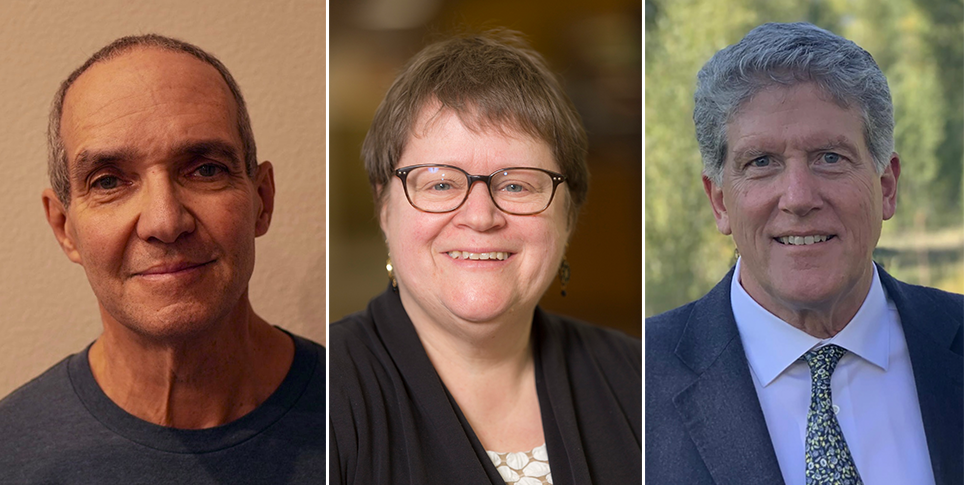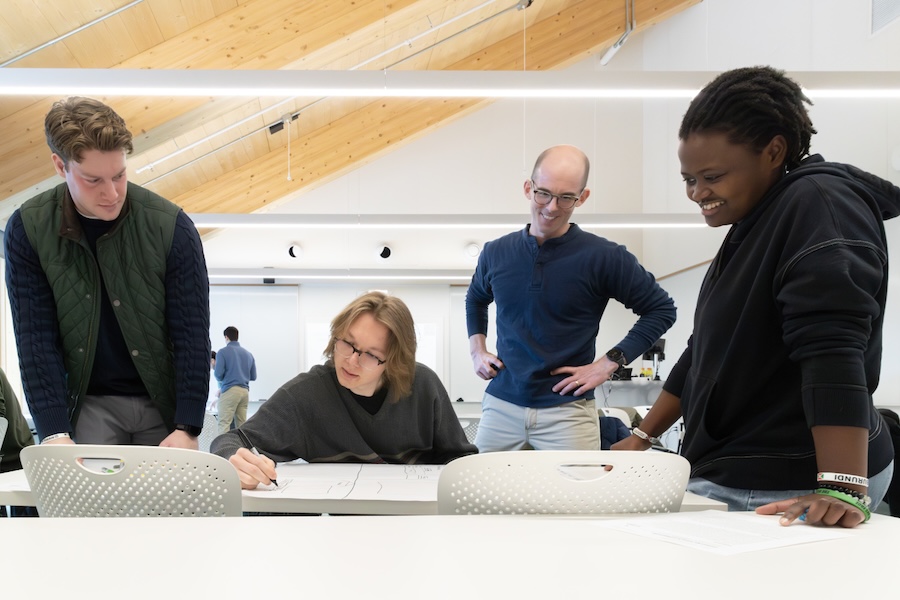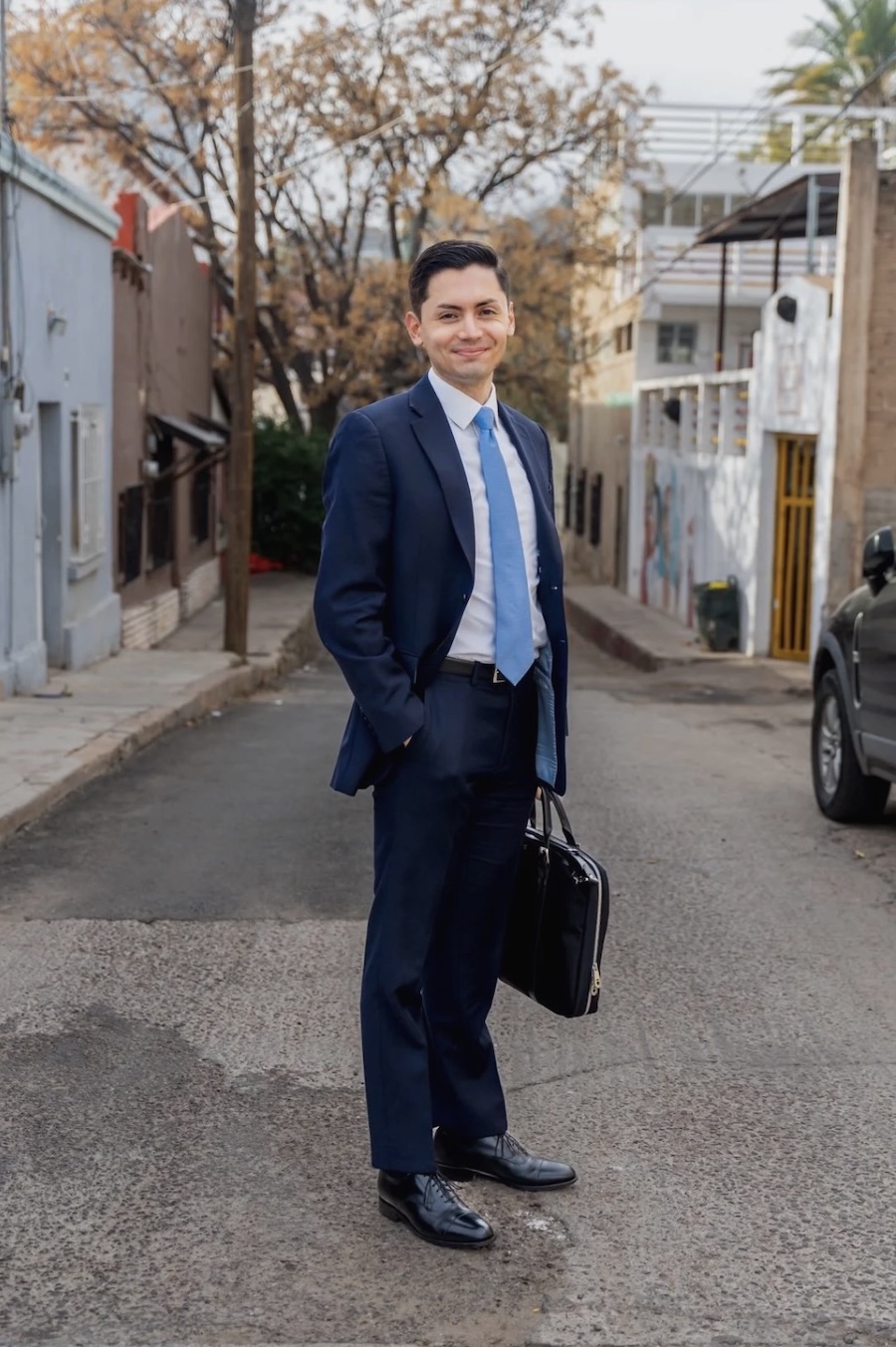Leading GOP Economist Larry Lindsey ’76, H’93 Shares his Insight
By Tom Porter“When I came here, I had always thought I was going to be a lawyer,” said Larry Lindsey ’76, H’93, as he reflected on his years as a Bowdoin student. He had never really heard anything about economics before, he admitted.
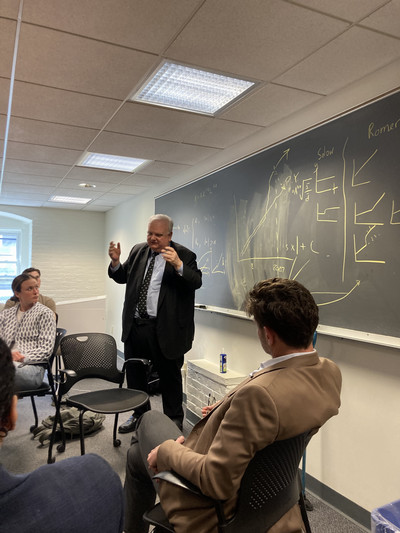
This all changed when Lindsey took a course in constitutional law, which led him to a life-changing conclusion: “I liked the way economists made decisions, and I didn't like the way the legal profession made decisions.”
Being a lawyer, he decided, was too adversarial for him, “too much like fighting in the arena. How much better just to be logical? I like the idea that you had an objective and that you had tools to see how you could achieve that objective.” Most economics, said Lindsey, is common sense. “That’s because it’s based on the notion that we’re utility maximizers, which is a pretty commonsensical way of thinking about human behavior.”
He was talking to students in Associate Professor of Economics Stephen Meardon '93’s class Econ 3513, The History of Economics at Bowdoin. The course examines two centuries of scholarship on the subject at the College, starting in 1824, when Bowdoin became the first college in New England to designate a faculty position in political economy. Using public documents and institutional archives, students explore the contribution of numerous Bowdoin scholars through the ages—faculty and alumni—investigating their contributions to economic thought, pedagogy, and policy.
This list of scholars includes Lindsey, a former Harvard professor who held policy positions under three Republican US presidents. He is also known for correctly predicting the stock market bubble of the late 1990s while serving as governor of the Federal Reserve, and for accurately predicting that the financial costs of the Iraq war would be much higher than White House estimates—a dispute that cost Lindsey his job as chief economic adviser to President George W. Bush in 2002.
During the ninety-minute conversation, Lindsey answered questions from the class on a range of topics, including taxation policy, how to deal with a recession, and his outlook for the financial markets, which is not optimistic: “We have the biggest peacetime deficit ever in a full-employment economy,” he observed, predicting a “sizeable adjustment” in asset prices next year. No matter who wins this year’s presidential election, warned Lindsey, “I think we’re in for a market disaster in 2025. That’s when the rubber hits the road.”
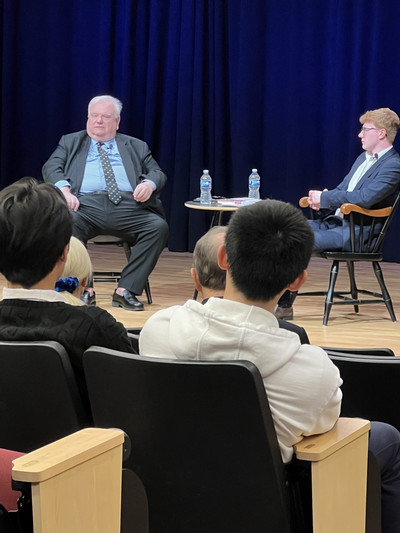
“The Bowdoin economists whose contributions we’ve studied in Econ 3513 include both faculty and alumni,” said Meardon. “Some have served to advance economic theory, some public policy and administration. Larry Lindsey is among the few to have done it all.”
After talking with Meardon’s students, Lindsey made his way to Kresge Auditorium where, at the invitation of the Bowdoin College Conservatives, he took part in a Q&A with the wider Bowdoin community, moderated by the group’s leader Zak Asplin ’27.
Lindsey reminisced about his time at Bowdoin and offered his thoughts on a range of political and economic issues facing the country. A point he stressed in both the classroom and the Kresge conversations was the extent to which he believes institutions are motivated by self-interest. “Economists are great believers that individuals act in their own self-interest… But institutions are the same way: Their prime directive is their own survival.” Over time, he argued, societies have a tendency to create institutions that grow and assert their own power. An example of this, said Lindsey, is the Federal Reserve, an institution he says he has “enormous respect” for (having served as one of the bank’s governors), but which also acts in its own interest. “That means when it makes mistakes, which is does, it tends to cover them up.”
Despite his Republican credentials, Lindsey told the audience he does not regard himself as a conservative but more a pragmatic libertarian. “I believe in making sure that policy works and has to be well designed, and I'm also a great believer that trusting people to run their own lives is probably the best way to produce good results.” Some of these traits, he admitted, do overlap with conservatism, “but I always think of the conservative system as wanting to keep things as they are, and there is nothing about my career that says keep things as they are. I think that pragmatism and liberty are the best way to make positive changes.”
“I think we’re in for a market disaster in 2025. That’s when the rubber hits the road.” Larry Lindsey '76, H'93.
Reflecting on Lindsey’s visit, Professor Meardon had this to say: “A question worth asking of economists in the upper echelons of both academia and public service is: What economics do they take from the classroom to government? Is it undergraduate economic principles or the journal articles of graduate seminars? Lindsey’s answer was decidedly the principles option: ‘Everything else is just refinements of common sense.’ For us on the Bowdoin economics faculty, his answer raises the stakes!”
